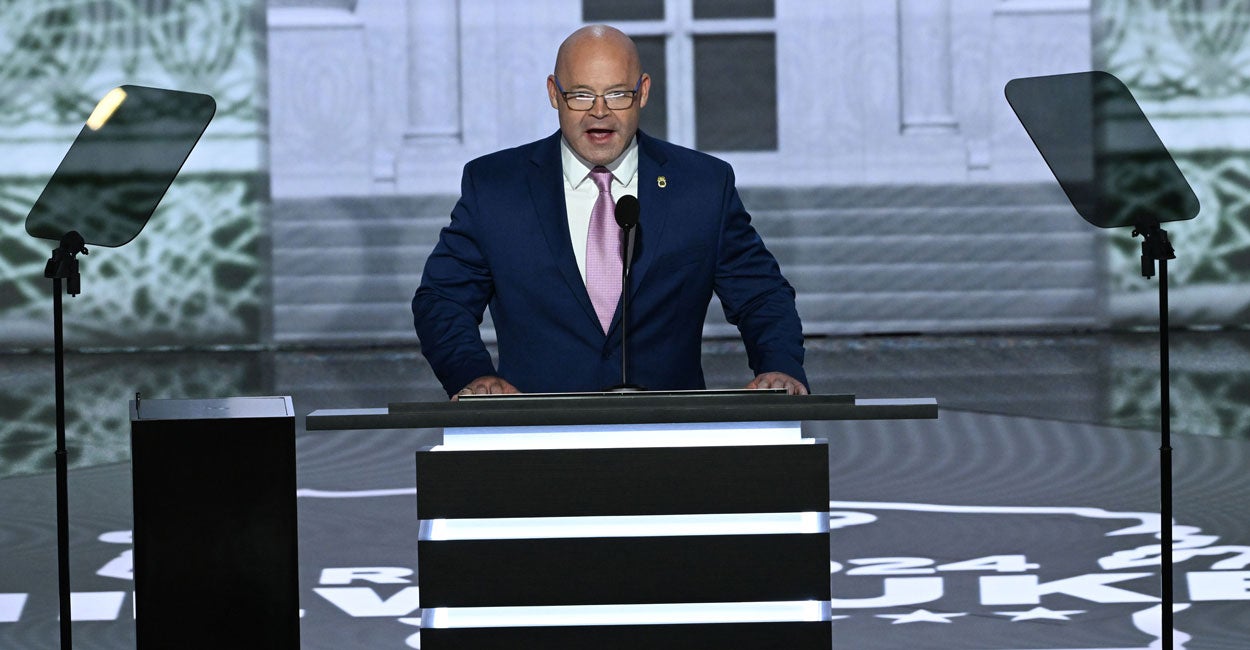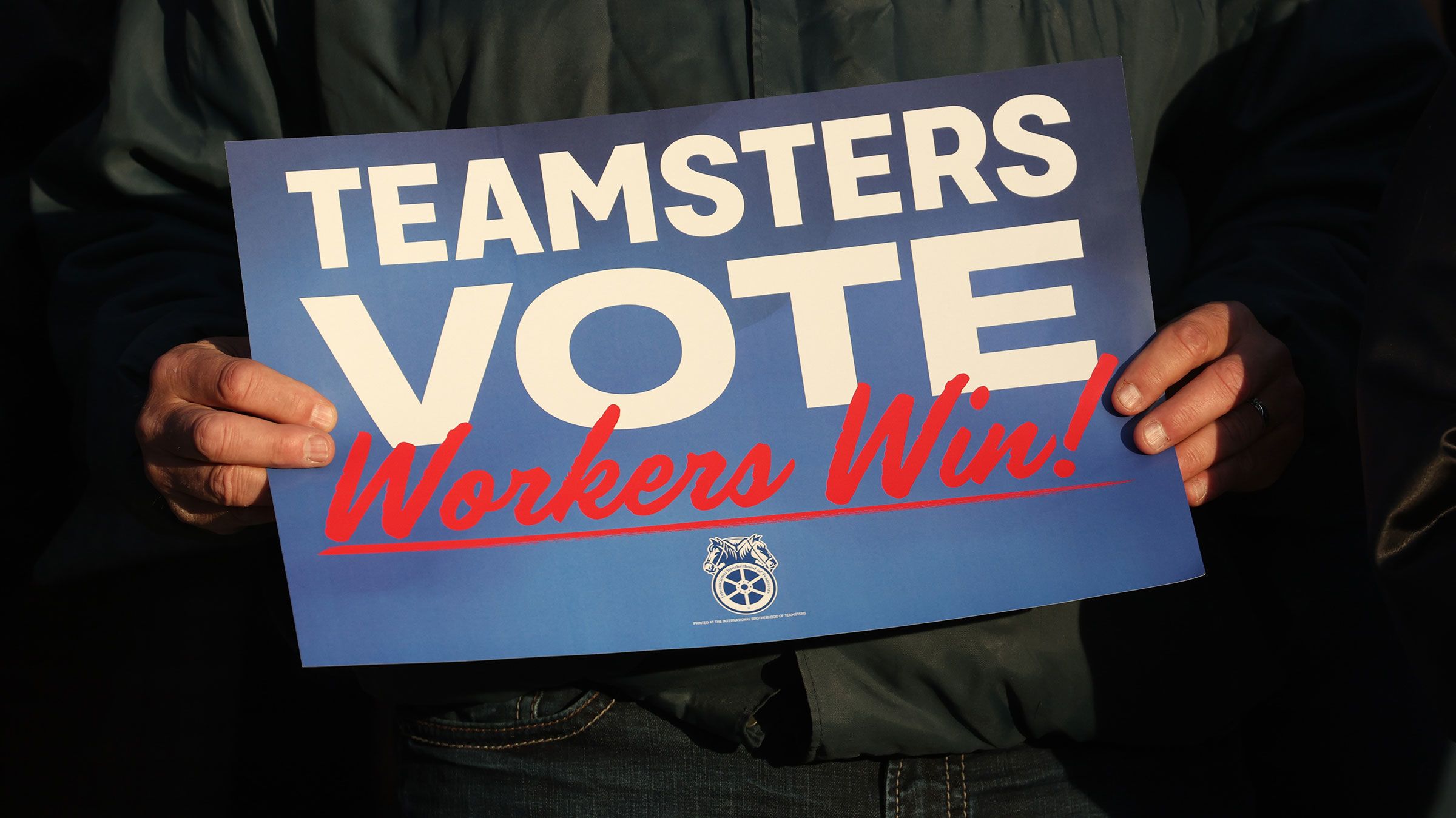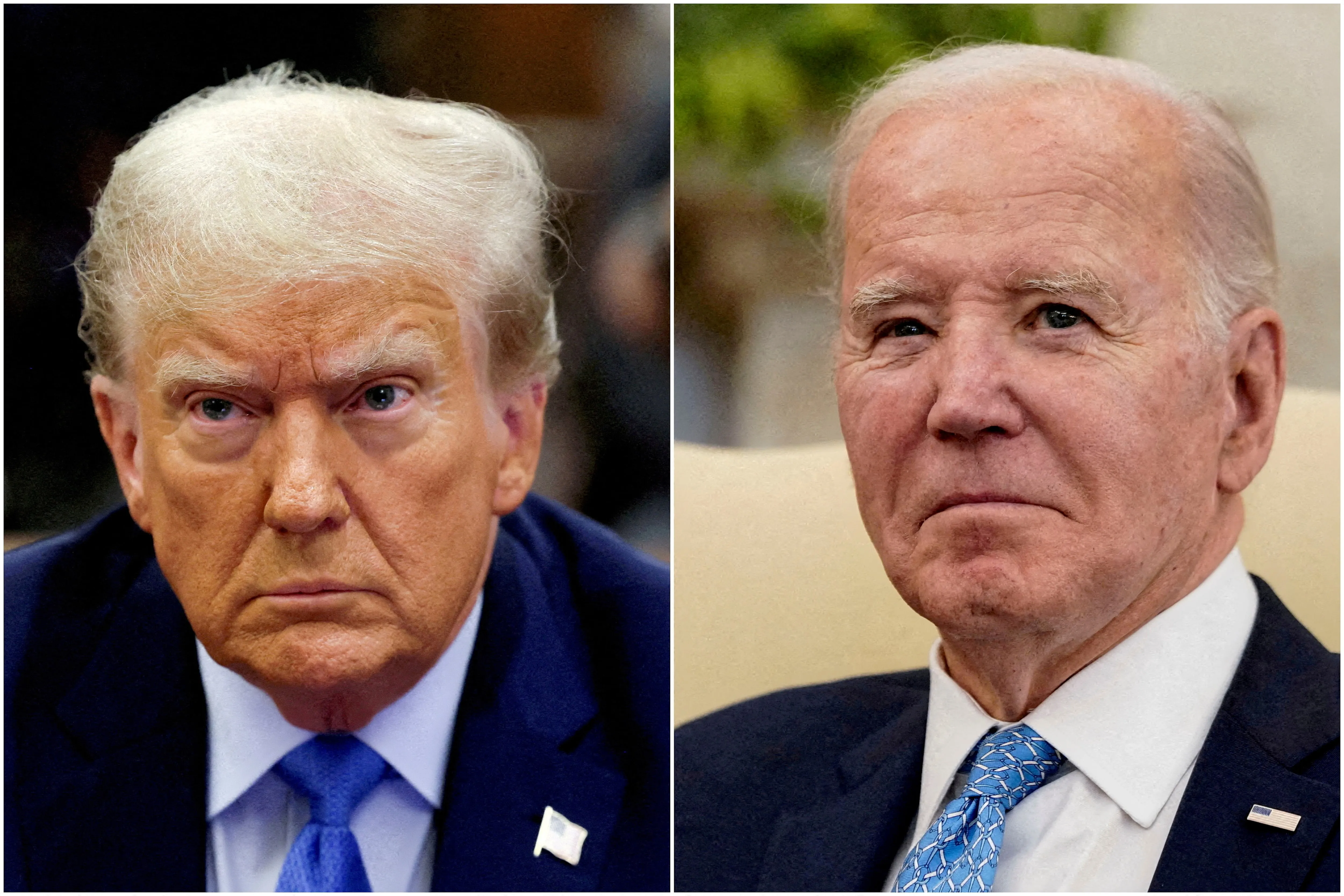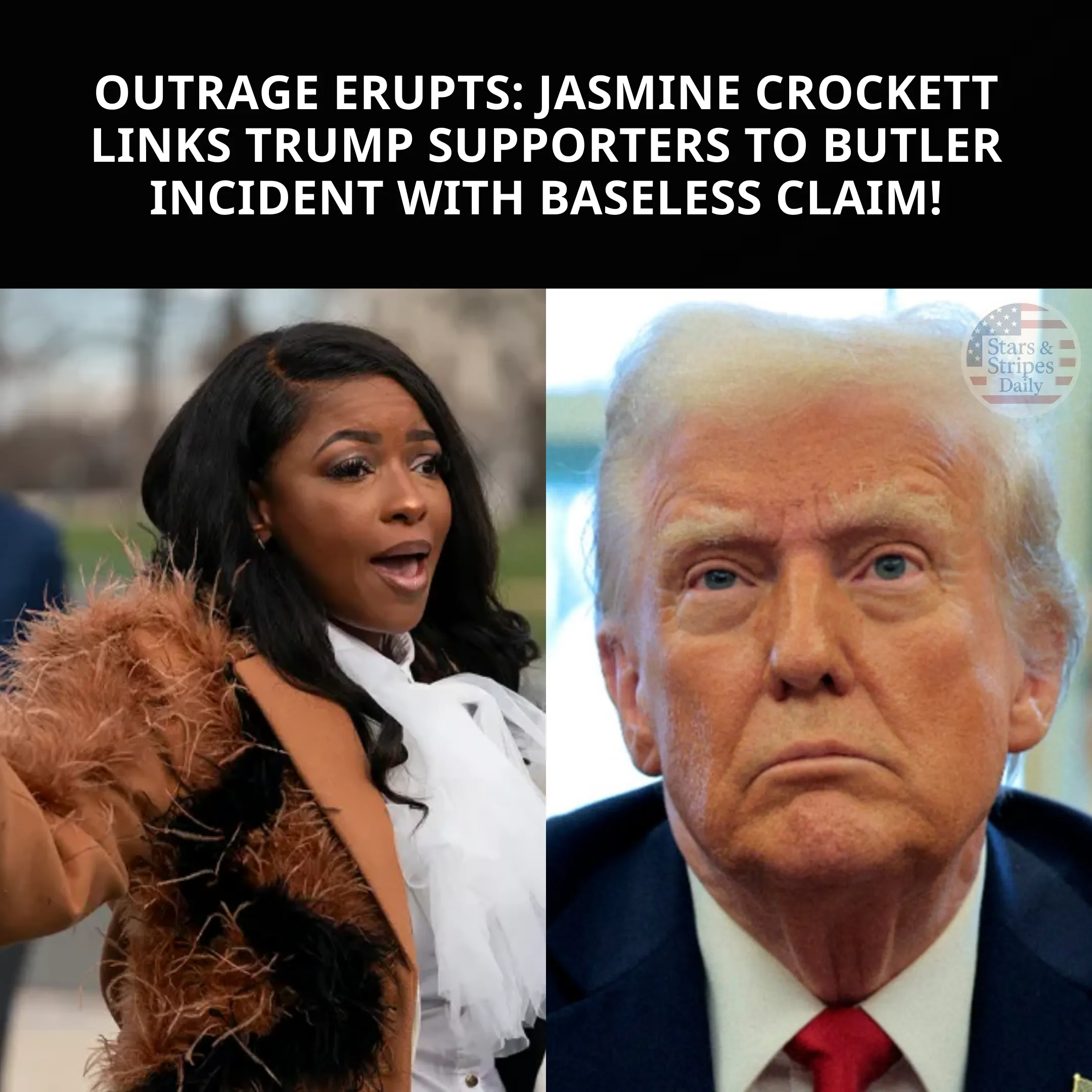
In a surprising political shift, the International Brotherhood of Teamsters, one of the nation’s largest labor unions, has made significant donations to the Republican Party, signaling a move toward the GOP after decades of backing Democratic candidates.
This unexpected pivot marks a pivotal moment in the union’s history, which has long been a cornerstone of Democratic support. The donations, totaling tens of thousands of dollars, reflect a broader trend of organized labor increasingly reaching across the political divide to work with lawmakers on both sides of the aisle.
The Teamsters, with 1.4 million members nationwide, have traditionally been staunch supporters of the Democratic Party. For years, they’ve donated millions of dollars to Democratic candidates and causes, especially those aligned with labor interests.
However, in the second quarter of 2025, the union’s political action committee, D.R.I.V.E (Democrat, Republican, Independent Voter Education), broke from its usual partisan allegiance by contributing $5,000 to the National Republican Congressional Committee (NRCC), marking the first time in nearly two decades that the Teamsters have donated to the GOP’s House campaign arm.
The PAC has also provided a combined total of $62,000 in contributions to some of the most vulnerable House Republicans facing re-election in 2026.
Among the Republicans who received Teamster PAC donations were Reps. Rob Bresnahan (R-PA), Brian Fitzpatrick (R-PA), Jeff Van Drew (R-NJ), Mike Lawler (R-NY), and Andrew Garbarino (R-NY), as well as more than a dozen others.
The PAC’s political contributions were not limited to House races, however. The Teamsters also extended support to Republican senators, including Deb Fischer (R-NE), Lisa Murkowski (R-AK), Jon Husted (R-OH), and Dave McCormick (R-PA), further signaling their willingness to engage with Republicans at the federal level.
Outside of congressional races, D.R.I.V.E. made a notable donation of $50,000 to the Republican Attorneys General Association (RAGA) in June 2025.

While some may view this shift as a betrayal of the union’s historical ties to the Democratic Party, the Teamsters assert that their members’ interests transcend party lines, reflecting a new willingness to collaborate with lawmakers regardless of political affiliation.
Kara Deniz, a spokesperson for the Teamsters, articulated this shift in a statement to Politico. "Our members are working people whose interests cut across party lines," she said.
"And there’s no value in living in a bubble … where you only talk to certain people to the exclusion of others." This statement underscores the union’s determination to find common ground with politicians who are willing to address the needs and concerns of working-class Americans, regardless of their party affiliation.
The move has raised eyebrows in political circles, particularly given the historical alignment of labor unions with the Democratic Party. For decades, unions like the Teamsters have been among the most powerful allies of the Democratic Party, providing significant financial and grassroots support during election cycles.
However, with changing political dynamics and a growing recognition that union interests do not always align neatly with one political party, the Teamsters are signaling their willingness to expand their political reach.
This shift toward supporting Republicans does not mean the Teamsters are abandoning the Democratic Party altogether. Union President Sean O’Brien, who has long emphasized that the union will work with any lawmakers who advance union interests, has maintained that the Teamsters will continue to engage with Democrats when it serves their members’ interests.
In fact, the union’s PAC still donates more to Democrats than to Republicans, although the gap between the two parties is narrowing as O’Brien continues to champion a more inclusive approach to union politics.
O’Brien’s rhetoric and the union’s actions are part of a broader trend among labor unions to reach across political lines. This shift is not isolated to the Teamsters; other unions, such as the United Auto Workers (UAW), have also expressed support for some of President Donald Trump’s policies, particularly those related to trade and tariffs.

UAW President Shawn Fain, for example, has praised Trump’s tariffs on foreign vehicles, which have led to an increase in U.S.-based manufacturing from several foreign automakers.
"We applaud the Trump administration for stepping up to end the free trade disaster that has devastated working-class communities for decades," Fain said in 2025, applauding the president’s decision to challenge what he called the "broken trade deals" that have hurt American workers.
The Teamsters, too, have praised some of Trump’s policies, particularly those related to tariffs, which they believe benefit American workers. The union has long advocated for policies that protect American manufacturing jobs, and Trump’s stance on trade has resonated with their members.
The union’s refusal to endorse Vice President Kamala Harris in the 2024 presidential election was a striking example of this shift. Harris had been unable to secure the Teamsters’ endorsement, in part because she failed to engage with union leadership in a meaningful way.
O’Brien explained in December 2024 that Harris had refused to sit for a required interview with union leadership, a key step in securing their endorsement.
“I’m going to win with you or without you,” Harris reportedly said as she left the meeting, a comment that did not sit well with O’Brien and other union leaders.
As a result, the Teamsters withheld their endorsement, a move that defied longstanding tradition and sent a powerful message about the union’s evolving relationship with the Democratic Party.
The decision to withhold an endorsement from Harris and to donate to Republican candidates represents a break from the past, but it also reflects the changing realities of American politics.

The Teamsters, like many other unions, are grappling with the shifting political landscape and the recognition that their members’ interests may not always align with one party.
As the political climate becomes increasingly polarized, labor unions are beginning to understand the necessity of working with politicians from both sides of the aisle to achieve their goals.
One of the key reasons for the Teamsters’ shift in focus is the union’s desire to protect the interests of its members. As the political landscape has evolved, so too have the needs of the working class.
The Teamsters have recognized that addressing these needs requires more than just partisan loyalty; it requires a willingness to work with whoever is in power and can deliver for their members.
In this case, the union’s donations to Republican candidates reflect a pragmatic approach to politics, one that prioritizes the economic well-being of working-class Americans over partisan loyalty.
Despite this shift, the Teamsters remain committed to advancing the interests of working people. O’Brien has stated that the union will continue to push for policies that benefit its members, regardless of whether those policies come from Democrats or Republicans.
"We will work with anyone who will help us advance the cause of working people," he said in a statement. This commitment to bipartisanship is a reflection of the changing political landscape and the need for unions to adapt to new political realities.
As the 2026 midterm elections approach, the Teamsters’ political donations will likely play a significant role in shaping the outcome of key races. With their support, vulnerable Republican candidates in battleground states may gain an advantage, while the union’s continued engagement with Democrats ensures that its interests remain represented on both sides of the aisle.

The growing shift of labor unions, like the Teamsters, towards the GOP is part of a broader trend in American politics, where the traditional boundaries between the two major parties are becoming increasingly blurred.
As the political landscape continues to evolve, unions will have to navigate these changing dynamics and find ways to advocate for their members in a divided political environment.
In conclusion, the Teamsters’ donations to Republican candidates and their willingness to work across party lines represents a significant shift in the labor movement’s political allegiances.
While the union has not completely abandoned its historical ties to the Democratic Party, it is increasingly looking beyond partisan boundaries to work with lawmakers who can address the concerns of working-class Americans.
This shift reflects the changing realities of American politics and the growing recognition that labor unions must adapt to a more polarized and fragmented political landscape.



